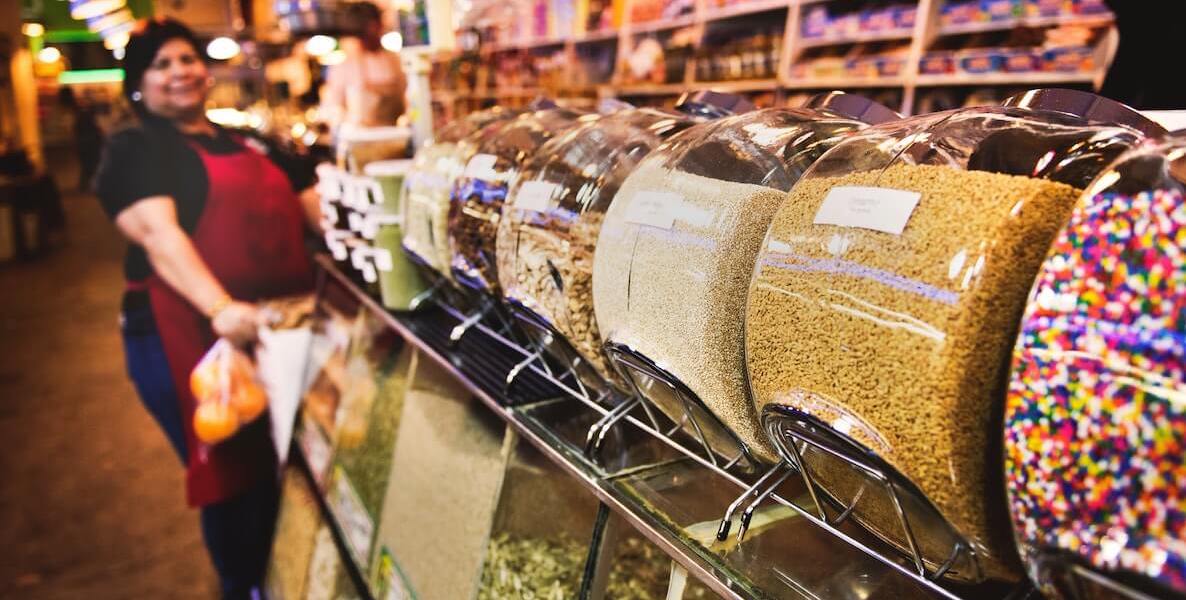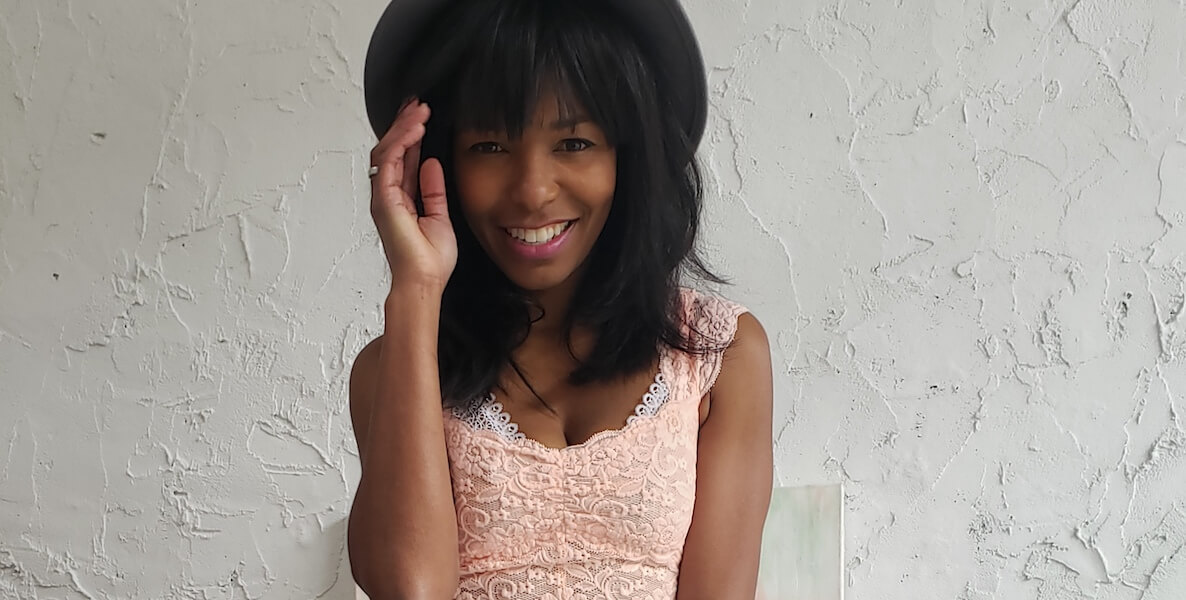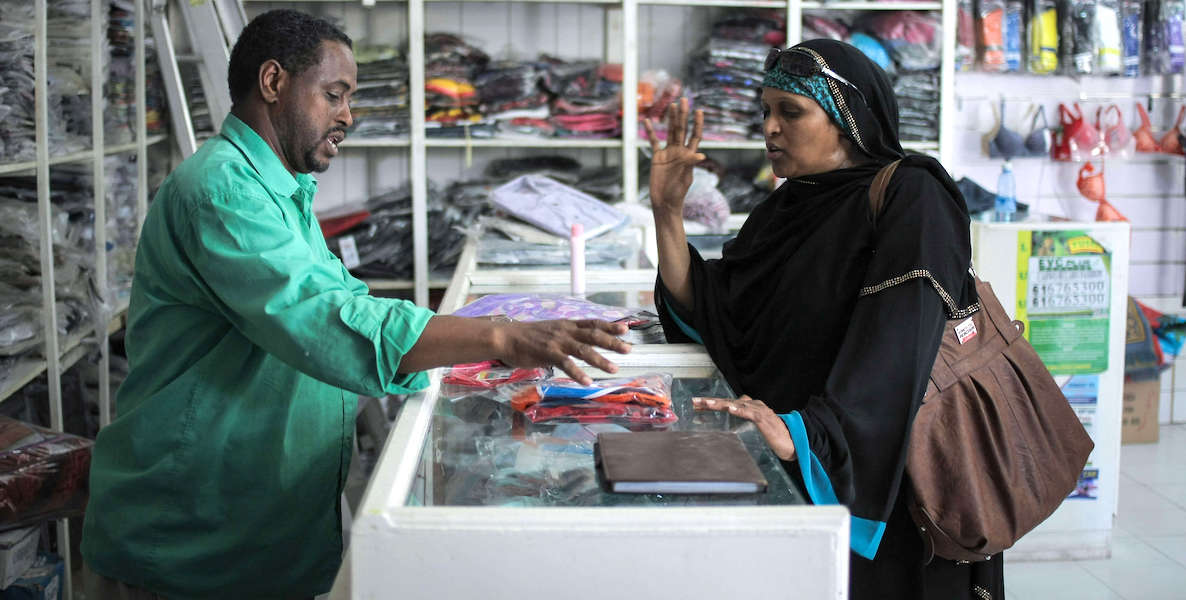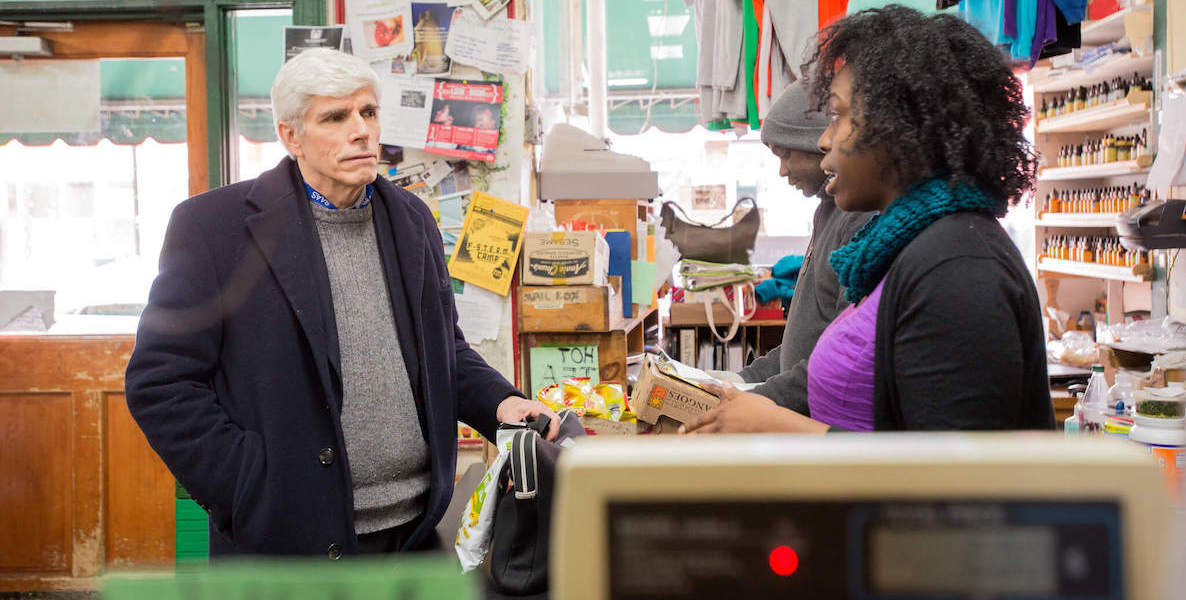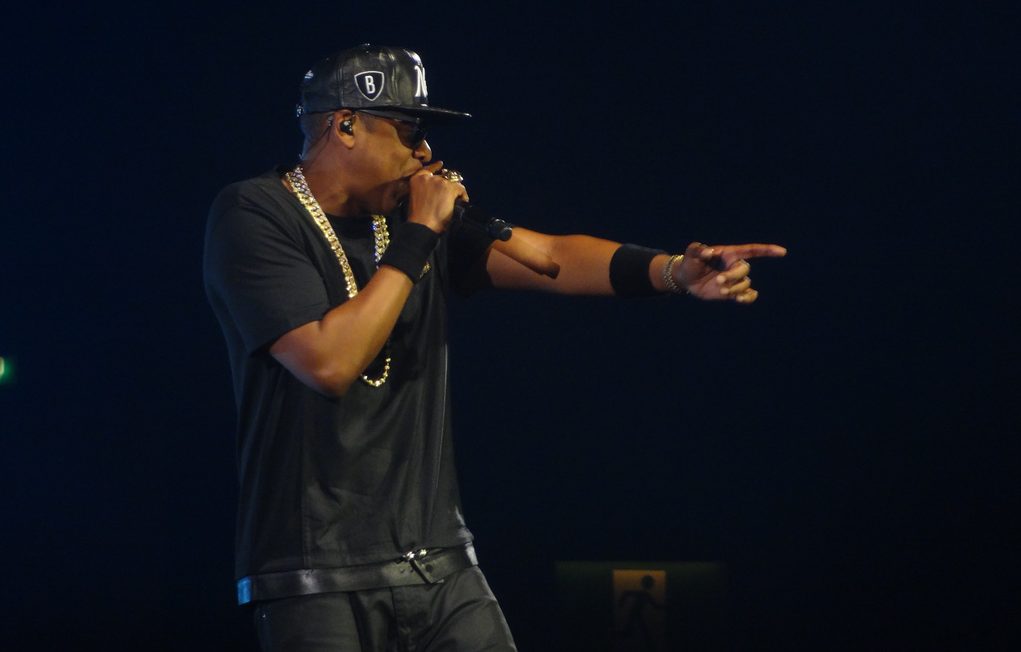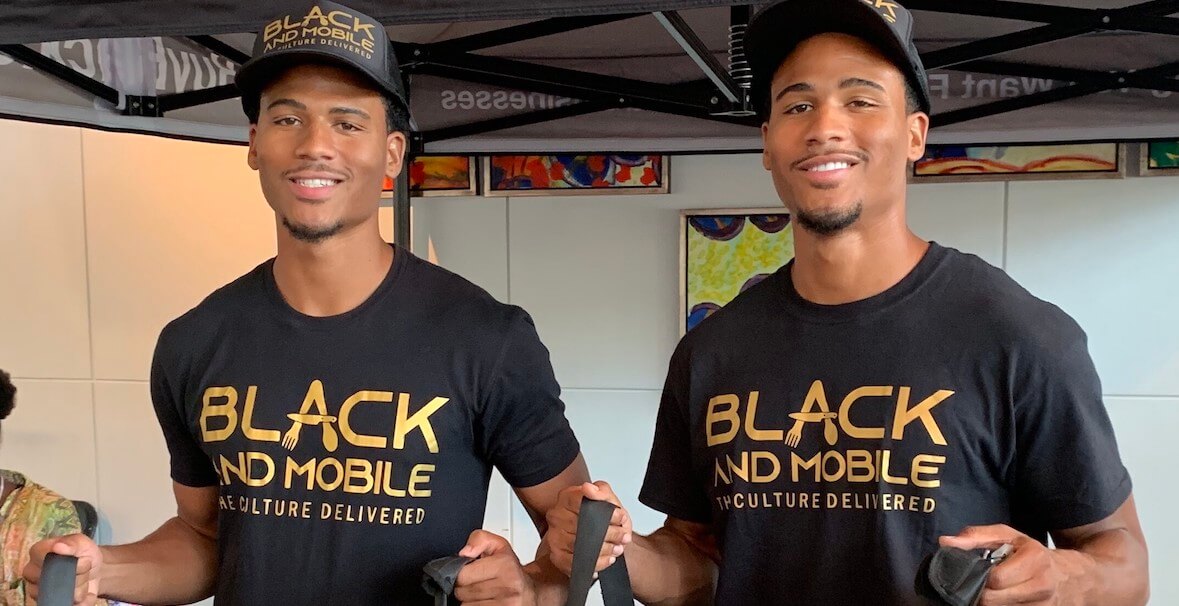Throughout 2017, David Cabello spent most days biking through Philadelphia as a courier for food delivery services, trekking to restaurants to pick up orders, dropping them off with hungry customers, and then starting the whole process again.
He delivered for Postmates, then UberEats, before finally settling on Caviar. One day, he biked for over 30 hours and made $1,100. “Once I made that much money delivering food on a bicycle, I wondered how much money I could make with my own company,” Cabello, a Brisol native, says.
While the third-party delivery market is a crowded space — Doordash, Postmates, UberEats and Grubhub are all major players — Cabello noticed something that all of the services he had worked for had in common: few of the restaurants were Black-owned, and those that were were hard to identify.
“Unless it was obvious it was a Black-owned business, it was hard to tell and find them. Black-owned restaurants are underrepresented — we’re always underrepresented,” Cabello says.
from Black and MobileOrder Delivery
After doing some research, Cabello discovered that no companies in the third-party delivery service market were Black-owned, and none of them specifically catered to Black businesses or consumers. He decided to jump into that gap.
“I already knew that I wanted to focus on Black-owned businesses,” Cabellos says. “I wanted to convert some of those dollars back into the community,”
Black-owned businesses More ways to support
“I told myself I was going to start this business, no matter what, and that’s exactly what I did,” Cabello says.
After that, Cabello launched a Kickstarter campaign for $100,000 in order to raise money for the company. While the campaign was only able to raise just over $16,000, with many of the donations returned, the money he did receive went towards creating an updated website and app which launched in October of 2019. The Kickstarter campaign also caught the attention of local media outlets, which helped Cabello build a customer base.
Since then, the company has expanded to Detroit and Atlanta and has over 200 drivers across the three cities. A hundred of drivers are in Philadelphia and the company is continuously hiring. They’re looking to add about 200 drivers in each of the three cities and hope to expand to Los Angeles by the end of 2020.
In the first six months of 2020, Black and Mobile has delivered six times the amount of food it sold in 2019. January and February brought in $50,000 in food sales and March — the first month when coronavirus forced many restaurants to rely solely on delivery sales — saw close to $30,000 in food deliveries. In April, they saw $70,000 in food sales.
“The reaction from the people that want to support us, that love what we’re doing … It’s an amazing thrill,” Cabello says.
The quick growth has brought on a number of challenges, however. Cabello currently has no investors and, as the sole owner, he has had to reinvest some of his profits back into the business. He currently spends between 80 to 100 hours a week on the business. His mother and his twin brother, Aaron, work full time helping him and he has a small staff who help with customer service and dispatching orders.
“Of course, if I had as much money as the other services, that would be helpful. They raise millions of dollars, and I’ve never raised any money,” Cabello says. “I don’t have enough of a team or a staff to do everything that I’m doing.”Still, the business has thus-far been able to generate enough capital for Cabello to pay his staff and his drivers, while still allowing him to invest money back into the company. While he’s received interest from investors, he’s looking for a strategic partner to “help grow this into the fortune 500 company that it is,” he says.
Since Covid-19 forced the city into a shelter-in-place order the demand for food delivery has increased and it pushed Black and Mobile’s app to its limits. It can sometimes take Black and Mobile’s dispatch system up to two hours to place orders with restaurants, which can result in major delivery delays. Under the current system, Black and Mobile dispatchers have to call in orders to restaurants and can sometimes face holds or busy phone lines which cause these delays.
This can make restaurants wary of partnering with Black and Mobile. Of Philly’s 200 some Black-owned restaurants, only 55 are working with Black and Mobile and Cabello says it’s largely due to inefficiencies within their app. “They know of us, but it’s just getting our system updated so they can trust us enough and that they want to work with us,” he says. “Those are our biggest challenges.”
To help fix these problems, Black and Mobile is partnering with the Black-owned digital design company JumpButton Studio to create a new website and app that will help it compete with food delivery giants like Grubhub and Caviar. The new app and site will launch in July, with a system that allows users to send orders directly to the restaurant like other online delivery services do, eliminating the need for dispatchers to call in orders.
“When our new app launches, it’s going to be absolutely ridiculous,” Cabello says.
about Black-owned businesses in PhillyWhat you should know
Black and Mobile celebrated its best day on Juneteenth as Americans ordered from Black-owned restaurants en-masse in support of national campaigns, like My Black Receipt, which encourage consumers to support Black-owned business. On Instagram, Black and Mobile posted numerous photos of happy customers holding their orders to mark the occasion.
Cabello already has his eyes on expanding his business into other areas, such as rideshare.
“I never thought my business would take off this fast. It’s only been 16 months and we’re already in our third city. It’s a great feeling to come up with an idea and manifest it,” he says. “I could do anything I want with Black and Mobile and no one can stop me but myself.”
Black and Mobile isn’t the only delivery service to take advantage of this newfound interest in supporting Black businesses, however. UberEats, Postmates and other delivery services have now added filters to their apps so that consumers can find Black-owned restaurants.
Still, partners like Nuyen and Shon Emanuel, who own Supreme Oasis Deli and Bakery (SODAB) in West Philadelphia say that they’ll continue working with Black and Mobile.
“Once we linked up with Black and Mobile, we have had non-stop deliveries,” Shon Emanuel says. “If a restaurant does sign up, they’re going to see their sales increase exponentially.”
Part of this is due to a key differentiator in Black and Mobile’s business model. Like other delivery services, Black and Mobile makes its profits by charging restaurants a 20 percent delivery fee. Unlike these other services, Black and Mobile does not require restaurants to list the same price on their app that they do for in-store orders. Restaurant owners can, therefore, raise their prices slightly to make up for the delivery fee.
“I was very impressed because I thought since they were kind of a startup business that their fees would be higher,” Shon Emanuel says.
Their willingness to allow restaurants to raise prices on food to recuperate some of what is lost in the delivery fee could be key to furthering Black and Mobile’s success. Other services, including UberEats which SOBAD formerly used for delivery, have faced backlash over their high delivery fees.
“They were cheaper than UberEats,” Shon Emanuel says. “We were getting more business from Black and Mobile and their fees were significantly less.”
The financial gains are just part of the reason restaurants want to work with Black and Mobile. Equally appealing, the Emanuel’s say, is Cabello’s desire to support other Black-owned businesses and people in their communities. Under UberEats they received a few orders a week. With Black and Mobile, about 35 to 40 percent of their business has become delivery. “The sales just started taking off,” Nuyen Emanuel says.
“Once we linked up with Black and Mobile, we have had non-stop deliveries,” Shon Emanuel added. “If a restaurant does sign up, they’re going to see their sales increase exponentially.”
Cabello has also helped the Emanuels grow their social media presence — they went from 200 followers to nearly 1,000 when the service tagged them in a post — which helped make SOBAD one of the most popular restaurants on the service.
“They’re trying to do exactly what we’re trying to do: help the community,” Shon Emanuel says. “They give back to their community all the time. They want to help everyone.”
In addition to supporting his partner restaurants, Cabello tries to support other Black-owned businesses and the broader community. He’s currently looking to work with Black lawyers and accountants and they’ve partnered with Free Meals Philly to deliver boxes of food to the elderly during the pandemic.
The community support goes both ways, according to Nuyen Emanuel. “They’re like celebrities,” she says. “We have people who live in the neighborhood that just call Black and Mobile just to support them.”
The reactions from and the support from the community are a large part of what has pushed Cabello to continue to grow Black and Mobile despite the challenges. “The reaction from the people that want to support us, that love what we’re doing … It’s an amazing thrill,” he says.
David Cabello (right) and his twin brother Aaron.


